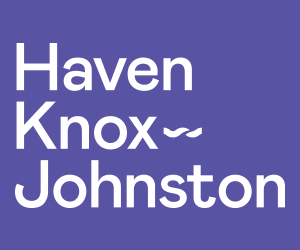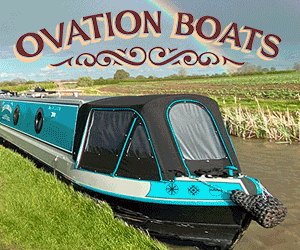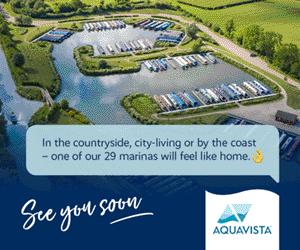Sophie Callis - The Boat Pod
Sophie Callis runs a narrowboat recording studio in London’s Little Venice. In conversation with Andrew Denny, she tells of a ten-year struggle to make it happen and how lockdown played a part

The lockdowns were a dull and unsettled time for many of us. Groundhog days, empty hours and far too much opportunity to reflect on the deadly consequences of the pandemic we were living through. But for some, the sudden break in routine and excess of free time provided the chance to carve out a new enterprise.
Sophie Callis was one such person. Having spent a career in the music industry, primarily as a broadcaster and DJ, she decided to pursue plans to create a recording studio aboard a narrowboat in the heart of London’s Little Venice. Now up and running, it is providing a whole range of podcasting, vodcasting, live streaming, voiceover and video conference services to customers coming from all over the world.
Dad’s boat
Sophie’s waterways story begins with this very boat, Lionheart, which originally belonged to her father. “I kind of hijacked it,” she confessed, when I met her aboard it in May. “For many years it had been a dream of his to have a mooring in London, specifically in Little Venice. He didn’t actually have a boat at the time – he followed the official advice to make sure you secure a mooring before you find the ‘boat’ – but this spot came up in a moorings auction. He got very excited and bid on it but lost and was very upset. But [the then] British Waterways got in touch a month later and said that the winning bidder had pulled out and my father was next in line. It’s only after he got the mooring that he went to find a boat and [gestures around] this is it.”
Lionheart is a 55ft Colecraft of uncertain vintage with a four-cylinder Lister engine – a fairly typical leisure narrowboat originally fitted out in a floating-cottage style.

Lionheart was to come into Sophie’s life after she returned to London from a five-year spell living in France. When she finally moved onto the family boat, her record players were the first things she brought along.
“And I did on Lionheart what I do anyway, creatively mixing music and things for radio. And I thought the boat is the most phenomenal space for music.”
Business and bureaucracy
Sophie soon began to feel there was something magical about the Little Venice location and working on the water, and this was to lead to an idea. “I thought, wouldn’t it be wonderful if it could actually become an official concept, fitted out for professional work.”
And so she tapped on the window of the Canal & River Trust office around the corner, to see if she could get a business mooring licence.
It was to take over ten years. While she soon found a conventional land-based home, and led a hectic life flying around the world doing DJ gigs, Lionheart remained a much-loved family bolt-hole that she had free rein to use. She didn’t give up chasing the dream of turning the boat into a studio, in spite of no longer living aboard, but she was unwilling to risk her savings on the venture until CRT would guarantee permission.
“I cannot tell you the amount of bureaucracy and red tape I had to go through. It was all dogged determination and perseverance. Every year I would tap on their door again in Little Venice and ask ‘Can I have a business licence please?’
Finally, though, that metaphorical door was to open a jar. “One day I spoke on the phone to a lovely gentleman called Tom Jackson, who I think had recently joined the CRT Boating Business team. To my surprise, he turned out to be really supportive.”





